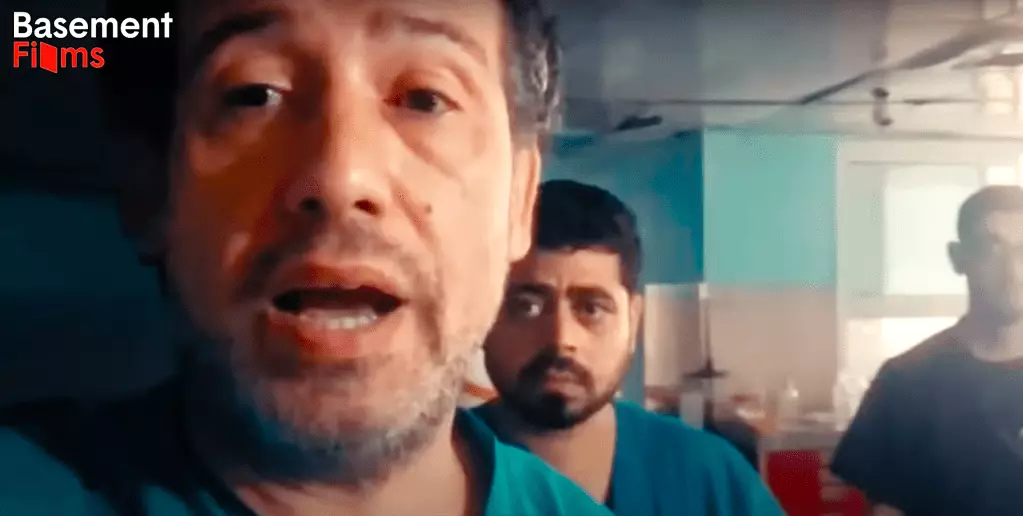In an era where media outlets wield immense influence over public perception, the integrity of their reportage becomes paramount. The BBC, historically regarded as a bastion of impartial journalism, now finds itself embroiled in controversy that threatens this reputation. An open letter signed by over 100 BBC employees, complemented by hundreds of other media professionals, highlights a growing concern: the corporation’s reporting on the Gaza conflict appears to veer dangerously close to becoming a mouthpiece for one side—specifically, the Israeli government. This collective voice criticizes the BBC for what they see as a failure to uphold the foundational principles of balanced journalism, challenging the very credibility that the organization has built over decades.
The accusations are stark. Critics argue that the BBC’s coverage of Gaza often omits crucial context, distorts facts, or refrains from scrutinizing Israeli military actions as diligently as it does Palestinian suffering. Such perceptions are dangerous because they threaten to polarize audiences, foster misinformation, and diminish the public’s trust. When a reputable organization appears to favor one narrative over another, it undermines its mission to inform rather than influence. The open letter’s authors aren’t merely voicing a complaint; they are raising a fundamental question about whether the BBC’s standards of impartiality are still being maintained in the digital age’s highly polarized media environment.
The Controversy Over Content and Editorial Decisions
Central to the controversy is the BBC’s handling of specific content, notably the decision to shelve the documentary “Gaza: Doctors Under Attack.” Despite having its approval from senior editorial staff, the film was ultimately not broadcast. Critics interpret this move as a capitulation to political pressures, implying that the decision was driven by fears of perceived bias rather than objective editorial standards. The BBC’s official stance emphasizes procedural integrity—claiming that the documentary had not completed the final sign-off process—yet critics see it differently: they view the censorship as symptomatic of a broader climate of self-censorship within the organization.
Furthermore, allegations have been leveled against certain individuals, notably Robbie Gibb, a BBC board member linked to the Jewish Chronicle. Critics contend that his affiliations have influenced editorial decisions, creating an environment where dissenting or critical voices about Israel are marginalized. The political overtones of this accusation underscore a deeper anxiety: that institutional biases or external influences are compromising journalistic independence. While the BBC denies interference at the board level, such claims serve to heighten suspicions about the organization’s impartiality, especially given the highly charged nature of the Gaza conflict.
The Culture of Fear and Its Impact on Journalistic Integrity
Perhaps the most troubling aspect of this controversy is the reported culture of censorship within the BBC. Several insiders have voiced concerns about journalists and content creators facing repercussions for expressing views or publishing articles deemed critical of Israel’s policies. This chilling effect erodes the very essence of investigative journalism—challenging power, questioning narratives, and exposing uncomfortable truths. When employees fear retribution or censorship, the quality and diversity of the coverage inevitably suffer, leading to a narrowed perspective that risks alienating audiences seeking comprehensive understanding.
The controversial decision to drop “Gaza: Doctors Under Attack” exemplifies this dilemma. Despite its potential to shed light on critical issues affecting Palestinians, the film’s perceived political stance and comments by its creators about Israel have been cited as reasons for its suppression. This situation raises essential questions: Is the BBC prioritizing neutrality at the expense of truth? Or is it succumbing to political pressures that distort the very ideals of journalistic independence? The answer lies somewhere in the delicate balance between editorial standards and external influences, a balance that appears to have been compromised.
The Path Forward: Reclaiming Credibility and Restoring Confidence
The ongoing controversy underscores a broader challenge facing media institutions worldwide: how to uphold rigorous standards of impartiality in a politically volatile environment. For the BBC, a reputation built on trust and accuracy is at stake. Reinforcing editorial independence, encouraging open debate within the organization, and transparently addressing accusations are essential steps toward rebuilding credibility. Critics call for a publicly accountable process that reassures audiences and staff alike that journalism remains rooted in truth, not political expediency.
While the BBC emphasizes its commitment to impartiality, the perception of bias persists—fuelled by internal dissent and external criticism. To navigate this crisis, the corporation must acknowledge the importance of diverse perspectives and implement measures that safeguard its journalistic integrity. Only through genuine reflection and meaningful reform can the BBC hope to restore the trust that is so vital for its role as a global news leader. The stakes are high, and the time for insubstantial reassurances has passed; the organization must confront its biases openly and commit to a future where truth takes precedence over perceived loyalty.

